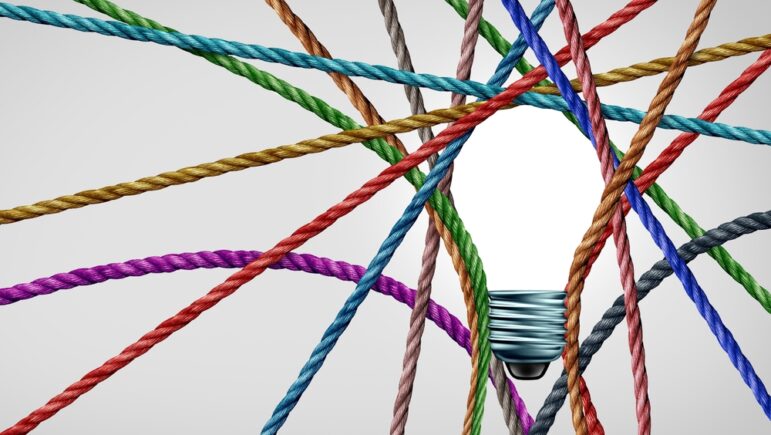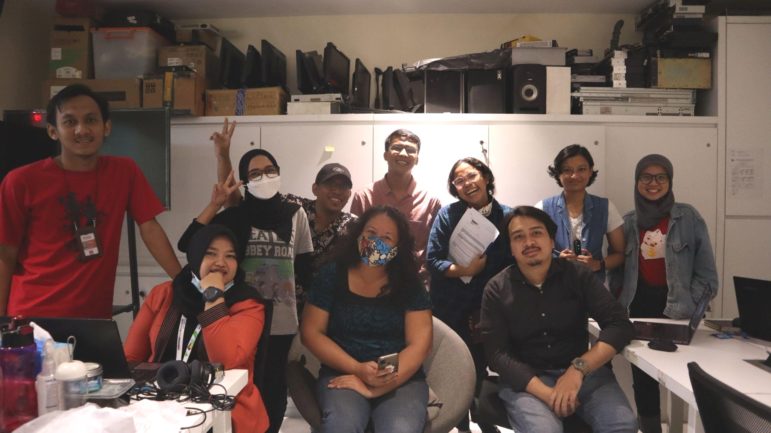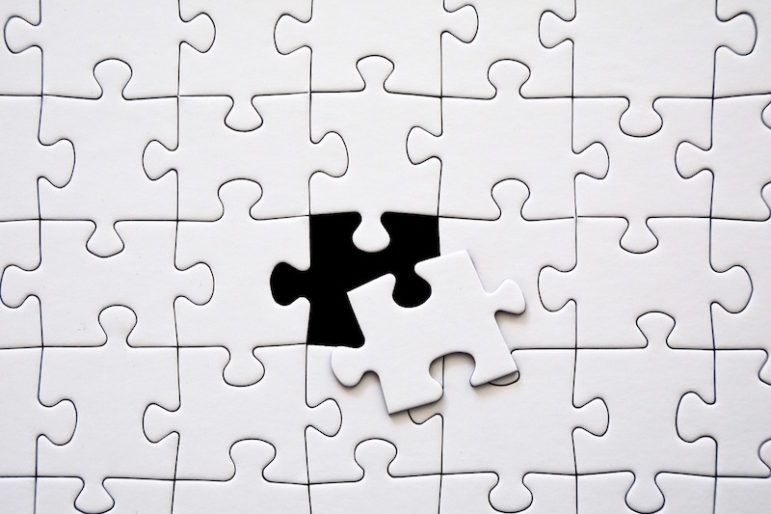

Image: Shutterstock
Finding — and Building — Your Professional Community to Strengthen Investigative Journalism
Read this article in
Journalism is a competitive and demanding profession. Building trust-based relationships, strengthening professional collaboration, and solidarity don’t just provide support — they make your work better and increase your chances of success.
While it’s perhaps a neglected skill, compared to learning new investigative techniques or harnessing new technology or data sources, the practice of networking is the foundation of this solidarity. The digital media environment has transformed journalists from isolated individuals into interconnected data points and networks. Investigative journalists have access to a peer community that fosters data sharing, information security, and collaboration. These networks are not simply methods of communicating. They form a vibrant and dynamic ecosystem shaped by ethics, reliability, and mutual learning. Investigative journalists not only share information with colleagues; they also share courage, resources, and visibility locally and internationally, enhancing their productivity and capacity for the challenging work they do.
My experience as GIJN Turkish editor illustrates how networks not only expand technical and methodological knowledge but also foster community-based learning, professional resilience, and solidarity. The GIJN Turkish network, for example, is a bridge connecting journalists in Turkey and Turkish-speaking journalists around the world, facilitating their access to reliable information, professional resources, and cross-border collaboration opportunities.
Networking expert Erdal Uzunoğlu explains that networking isn’t just about superficial encounters; it requires building meaningful relationships and lasting connections, and should emphasize the importance of focusing on the quality of relationships rather than quantity. True networking, he says, is based on mutual trust, sincerity, and empathy. A strong network enhances the resilience of journalism, both individually and collectively.
Below, we provide some tips for building and collaborating with an investigative journalism community — starting with your personal network.
Personal Networking Methods
Introduce yourself. The first step in networking for a journalist is clearly identifying who you are and what you produce. Unfortunately, fewer journalists regularly share their work and keep their interests and expertise up to date than one might think. A good first step in the digital equivalent of networking is creating a consistent persona that represents your professional identity. This online persona shouldn’t just be a showcase of your past work; it should be a professional profile that reflects your values, expertise, and approach. Trust is born from visibility and consistency. Make a personal website stand out with video, or provide a simple summary of your most important work so readers don’t have to scroll through a list of clips.
Make your work visible. Visibility in journalism isn’t just about personal promotion; it’s an invitation to exchange information and professional interaction. Sharing your latest investigation at a conference, explaining the challenges you’ve faced, or the methods you’ve used to make your work easier, not only allows you to share your experience but also allows you to engage in meaningful conversations with colleagues working in similar fields. An open and sharing attitude transforms you into a network member who both learns and contributes. Strong networks thrive not only on success stories but also on the sharing of problems, mistakes, and solutions.
Build trust by demonstrating ethical consistency. The sustainability of a network relies fundamentally on mutual trust. Journalists who embrace professional principles and build their careers around these values present a consistent and trustworthy profile to both their colleagues and the public. Maintaining the confidentiality of sources, verifying information, and transparent communication build trust in your professional reputation. An ethically consistent journalist is not only a collaborator; they also serve as a reference and reliable guide for their colleagues.
The International Consortium of Investigative Journalists (ICIJ) brings together hundreds of journalists around the world to work on complex, cross-border projects such as the Panama Papers or Pandora Papers — investigations that involve troves of leaked data and documents relating to dozens of countries. ICIJ not only disseminates best practices for working with complex datasets but also equips its members with extensive resources and guides them through legal, technical, and ethical challenges.
Develop a culture of sharing. Strong networks thrive in communities where information flows freely and experiences are shared. Being part of an effective network isn’t limited to receiving information; sharing your knowledge and experiences keeps the network vibrant. Sharing your thoughts on the research tools you use, the verification methods you employ, or the ethical dilemmas you encounter creates valuable learning opportunities for colleagues. Such contributions both increase your individual visibility and strengthen and solidify your position within the local and international community.
Be open to learning and feedback. One of the most critical aspects of networking is maintaining the learning process. While this may seem tiring at times, the progress and development of your profession depend on curiosity, inquiry, and a motivation to learn. Each interaction broadens your professional horizons by offering a different perspective or method. It’s important to consider feedback as part of professional development, without taking it personally. This approach positions journalists as flexible, adaptable, and open to collaboration.
For example, the data skills community DataJournalism.com and OSINT and investigative outlet Bellingcat enable journalists conducting open source investigations to learn from each other and improve data verification practices together.
Collective Networking Methods
Governmental institutions, international networks, non-governmental organizations, interdisciplinary collaborations, and digital platforms enhance journalists’ knowledge and strengthen their professional resilience and influence in the community.
Participation in international networks. By participating in international networks, journalists can gain access to global experience and resources. Such networks provide platforms for cross-border collaborations and collaborative research. They also allow journalists to share experiences with colleagues from different countries and collaborate on complex investigations. This participation not only provides journalists with diverse perspectives but also supports their compliance with international journalism standards.
Özge Mumcu, co-founder of the Uğur Mumcu Investigative Journalism Foundation (“um:ag”), highlights the importance of a network of investigative journalists by drawing on her own work and experiences. The Uğur Mumcu Investigative Journalism Foundation has been supporting investigative journalism in Turkey since 1996, contributing to an ethical journalism culture through training and building a network of journalists. For three decades, more than 300 aspiring journalists have graduated from its investigative journalism course; most of them are now working in the field and support each other at various levels.
For the um:ag community, networking means creating a foundation for solidarity among graduates, as well as establishing connections that will strengthen investigative journalism at the local and international levels. It participates in the GIJN Turkish network, a platform that fosters visibility and interaction among journalists working in different media outlets in Turkey, many of whom produce niche or independent work. For um:ag, the network is an ecosystem that empowers journalism through solidarity and sharing, and serves as a starting point for new partnerships and projects
Creating institutional partnerships. Institutional partnerships with media organizations, universities, and research centers can increase the sustainability and methodological validity of one’s reporting. Such collaborations not only provide access to resources but also enable journalists to conduct their projects more confidently and effectively. Institutional connections are critical for journalists to develop a disciplined investigative process and benefit from professional support.
Mentoring and training programs. Experienced journalists mentor their younger colleagues, ensuring the transfer of knowledge, experience, and methodological skills. Such programs build the capacity of young journalists and ensure the continuity of the network. Examples include Investigative Journalism for Europe (IJ4EU), which offers training and mentoring support, and GIJN’s own resource center and training series, which provide online and in-person knowledge in various disciplines. These approaches enhance both the quality and effectiveness of the collective network.
Collaboration with civil society organizations. Collaboration with NGOs facilitates journalists’ access to data, expert opinions, and technical support. They also increase the social impact of investigations by providing strategic support for rights-based reporting and advocacy activities. These collaborations also contribute to investigative journalists acting within the framework of social responsibility and ethical standards.
Strengthening local and regional networks. Investigative journalists need to establish solid local and regional networks. Local networks provide a critical infrastructure for information sharing, risk management, and field research and can connect investigative journalists with global projects, serving as a bridge that strengthens local and international ties.
Interdisciplinary collaborations. Investigative journalists can increase the depth and impact of their investigations by collaborating with legal experts, data analysts, and academics. This approach also allows journalists to develop their own skills. For example, the Organized Crime and Corruption Reporting Project (OCCRP) offers a successful collective model for investigating crime and corruption networks by bringing together international journalists and data experts.
Joint projects and collective publications. These networks translate their visibility and impact into tangible and measurable results; the ICIJ-led Panama Papers and Pandora Papers are instructive examples of this approach. Collaborations not only share information but also strengthen the culture of solidarity and collective responsibility in journalism.
Digital collaboration and platform use. Digital tools enable investigative journalists to securely share data, verify processes, and collaborate online. Platforms such as Slack, Signal, and Telegram enable journalists to coordinate quickly and securely. Digital collaboration stands out as a key mechanism for increasing interaction and collective productivity in both national and international networks.
In conclusion, networking in journalism, especially investigative journalism, is not merely about establishing superficial contacts but about building a trust-based, ethical, and resilient professional community. Networking equips journalists to navigate challenges, amplify the impact of their work, and contribute to a sustainable, collaborative ecosystem where knowledge, skills, and professional integrity are strengthened for all.
 Pınar Dağ is the editor of GIJN Turkish and a lecturer at Kadir Has University. She is the co-founder of the Data Literacy Association (DLA), Data Journalism Platform Turkey, and DağMedya. She works on data literacy, open data, data visualization, and data journalism and has been organizing workshops on these issues since 2012. She is also on the jury of the Sigma Data Journalism Awards.
Pınar Dağ is the editor of GIJN Turkish and a lecturer at Kadir Has University. She is the co-founder of the Data Literacy Association (DLA), Data Journalism Platform Turkey, and DağMedya. She works on data literacy, open data, data visualization, and data journalism and has been organizing workshops on these issues since 2012. She is also on the jury of the Sigma Data Journalism Awards.









